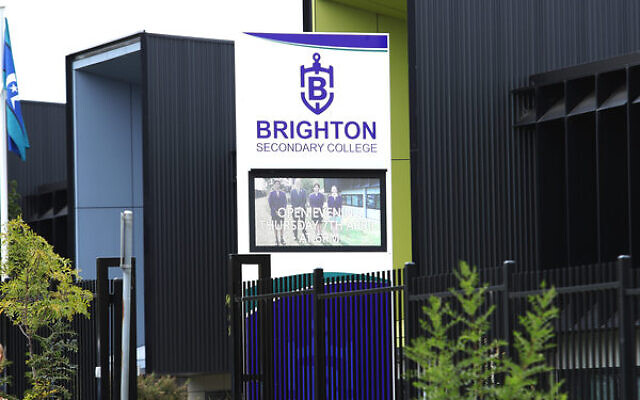Brighton outcome a generational shift
'The verbal assaults grew week by week. Why was I being "such a Jew", they taunted, using "Jew" as a metaphor for "miser". "He's such a Jew that ..." It didn't stop there...'
THE victory of five former students at Brighton Secondary College in a case they brought in the Federal Court of Australia against the school, the Department of Education and the State of Victoria, relating to widespread antisemitic bullying at the school, has triggered memories of my own childhood, marred by antisemitism at my high school.
Westall High School in the Melbourne suburb of Clayton in the late 1960s was a microcosm of an Australia in social transition. At the nearby Enterprise Migrant Hostel, families from Mediterranean countries were making their first steps settling into a mono-cultural, Anglo-centric Australia.
My family had arrived in Australia from Vienna in the early 1950s, and throughout my years at Clayton South Primary School, and into the early years of high school, I was one of the blow-ins.
A well-meaning primary school teacher once asked me about the peculiar sandwiches in my lunchbox (European rye, not the mandatory square white bread). Another teacher announced to our grade 5 class that “we have in our midst a Child of Israel”. It was without rancour, but lead-footed, and elicited questions from classmates as to magical powers I might possess! It was a lot to process for a 10-year-old.
In high school, I was derided with names that still cause my flesh to crawl. I was a “dago”, a “wog”, a “chocko”. At 12 and 13, that’s hard to take. But then things became worse.
Shortly after Yom Kippur one year, I was approached by a student whose family had recently migrated from Ukraine. She said she knew why I’d been absent – observing a Jewish holy day. There was something invasive, even malevolent in her tone.
Related or not, shortly after, the jibes against me changed. I now became the class “Jew”. The verbal assaults grew week by week. Why was I being “such a Jew”, they taunted, using “Jew” as a metaphor for “miser”. “He’s such a Jew that …”
It didn’t stop there. My locker was defaced with scrawls, my books stolen. In class, two pupils sat down on either side of me and stabbed me repeatedly me with ballpoint pens.
One day, on the way home from school, I was pushed into a construction ditch. On another journey home, I was punched so hard that I turned up at my parents’ local shop bruised and in tears.
My mother and father urged me to report these incidents to the principal and vice-principal. But it soon became clear these two teachers wanted no trouble. In fact, they told me accusers were just as bad as those accused. And reporting only fuelled more attacks. Our home received abusive, anonymous phone calls, and my mother was verbally assaulted in the street by a student.
The bullying didn’t stop with my classmates. I was taken aside by a student teacher who told me one of my teachers had confided in her he was deliberately under-marking me “because I want to see the little Jewish kid squirm”. The allegation stunned me and caused my parents much anguish.
I’m uncertain what action, if any, was later taken against this teacher, because soon after, I was taken out of Westall High School in desperation. My family and I even shifted house so I could attend Melbourne High School, which was geographically zoned. There I discovered one-third of the students were Jewish. It was safety in numbers and a pleasant culture shock, coming from a high school where, to the best of my knowledge, I was the only Jewish student.
For my parents, who had only recently lost family in the Holocaust and had come to Australia to find a haven from hatred, it was agonising to feel powerless again.
Years later, I tried to come to terms with what had happened by writing about it in a novel, View From A Sandcastle, whose title suggested the vulnerability I felt beneath my feet. The writing proved cathartic, and I hope has helped others.
What a contrast my situation of yesteryear was to that of the five former students at Brighton Secondary College. I admire the generational shift that has occurred; today’s culture of confidence in which they and their families launched their legal action against a school that had allowed antisemitic bullying and violence to occur without adequate counter-measures – in a 21st-century Australia where bullying and discrimination are taken seriously. I’m heartened that a judge listened empathetically and ruled wisely.
Like weeds in a garden, antisemitism and racism in schools won’t ever really go away. But the outcome of this case shows that perhaps we’ve made some progress in showing there are consequences.
Peter Kohn is a senior journalist with The AJN.


comments